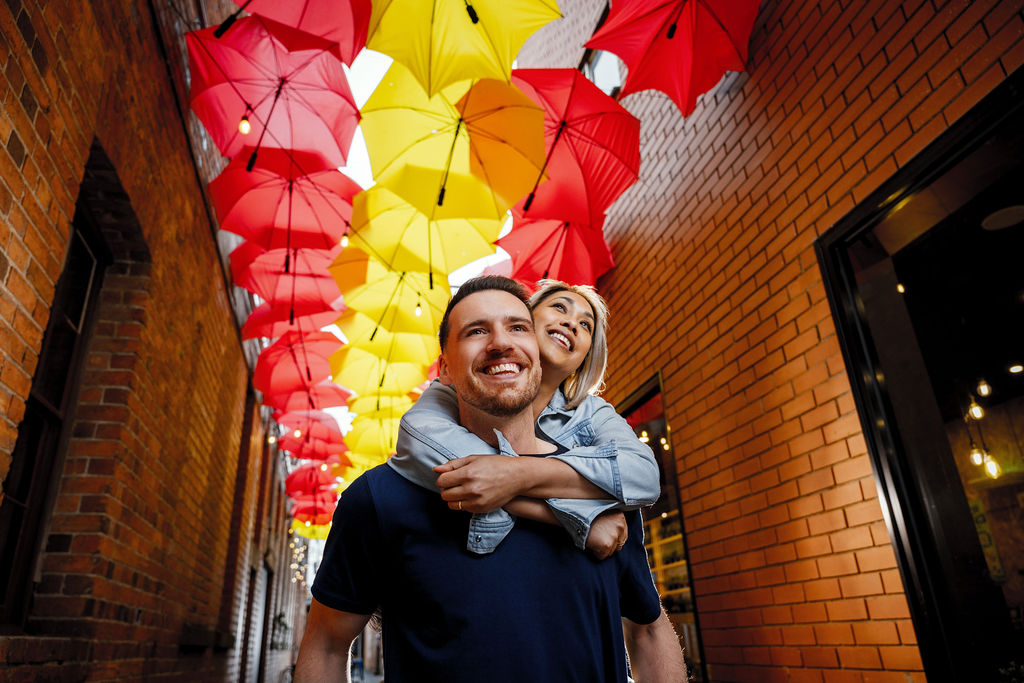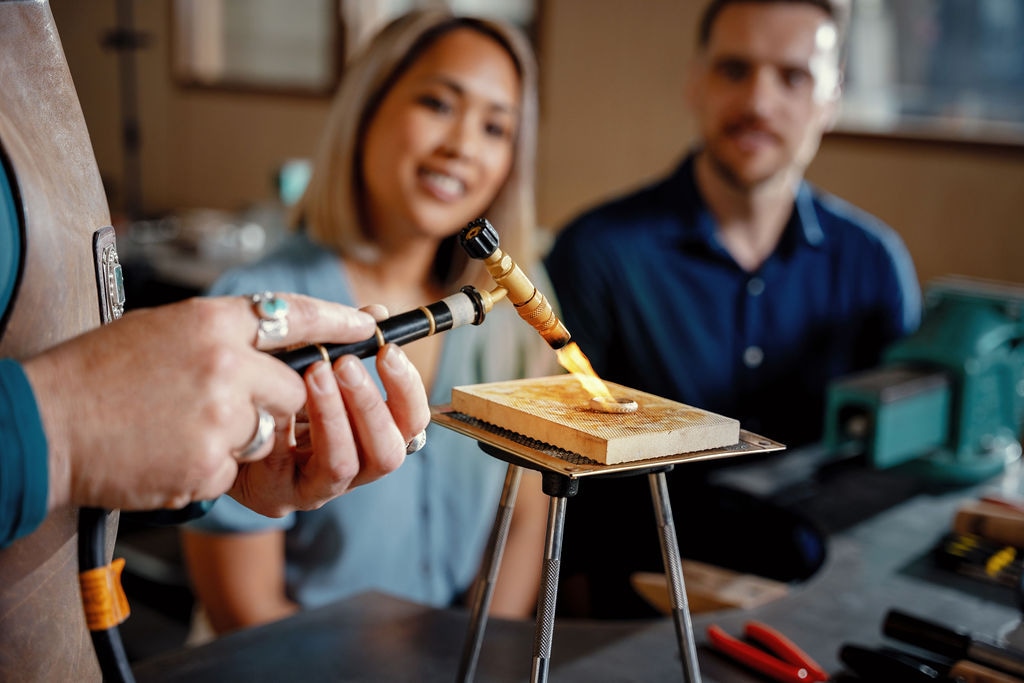To bee or not to bee? If you’re visiting Ballarat, there is no question.
Every time Amanda Collins and Scott Denno run their Secret Life of Bees Workshop, it’s a sellout.
It seems that visitors to this region cannot get enough of these busy creatures – and they're not alone.
In fact, the couple only had to look after a single hive for a mate to soon become obsessed and subsequently create Backyard Beekeeping Ballarat.
So what is it about bees that have us all wanting to suit up and get out the smoker?
“For me, it’s working with the bees,” Scott said. “Every time you open the hive, it’s something different.”
But for Amanda, it’s a passion born from the deepest admiration.
They only live for six to seven weeks and they work the entire time until they die.
“They start off cleaning their own cell, then they go through a whole range of roles. So that might be forager bee, it might be nurse bee, or it could be taking care of the queen. This brings them to one of their last roles as guard bee, a sentinel.
“And they sit at the front on a little landing pad to see off any pests, like European wasps, who may try to access the hive. So their ultimate role is like a sacrificial one, where they will lay down what little life they have left to protect the colony.”
Then there are the queen bees. They have a much longer life, up to five years. But it's advisable to change queens every couple of years to maintain hive health and productivity.
This interview had to be postponed when a queen bee and her escort bees arrived by post. The seal had broken and they were buzzing around the kitchen causing havoc.
Just another day in this busy couple’s life!

To hear Amanda and Scott talk bees is like listening to a cross between proud parents and crazed fans.
Of course, for a couple who once lived off the grid on 10 acres just outside of Ballarat, it makes sense that they value the environmental merits of bees.
But this is more than just appreciation. The family actually moved back to a quarter-acre block in town because, with less land to look after, they could now devote that time to their hives.
A hive can have as many as 40,000 to 60,000 bees.
“And we’ve got around 60 hives,” added Amanda.
Women are very intuitive around bees.
Amanda is a big advocate for women becoming apiarists.
“Women are very intuitive around bees. Things like the noises the bees make. After the hive has been open for a while, they will actually tell you when they’ve had enough. I just find that women are more in tune with that part of it,” she said.
Since being introduced to beekeeping in 2013, the couple has hit the books studying.
They are involved in more organisations than we care to list, including helping to start the Ballarat Regional Beekeepers Inc and being trained members of the Victorian State Quarantine Response Team (aka SQRT).
Further to these, they have been chosen by the CSIRO and Ballarat Tech School to have sensors put on their bees to monitor hive heath. It’s all part of a global initiative into honeybee health.
“We are the first beekeepers in Victoria to be involved,” Amanda added.
During early spring, the couple inspect their hives for enough nectar and pollen stores to sustain them and, if inadequate, migrate them to locations across central Victoria where there is a honey flow.
“We move bees at night, so we head out to the apiary, close all the beehives, load them onto a trailer and take them to the next chosen forest, farmer’s field or somewhere close where there are trees about to flower," Scott said.
"We then leave the bees there for six to eight weeks, depending on the flowering cycle.”

Backyard Beekeeping Ballarat also hires out hives.
“People hire hives for honey because they are curious or it’s a lifelong dream. The other reason is for pollination,” Amanda explained after telling us they’ve been trialing just that with a local organic olive farmer.
"Despite olives being wind-pollinated, there has been some evidence around the value of introducing bees when yields have been reduced.”
During spring, it’s breeding season and Backyard Beekeeping Ballarat is often called upon to help collect and re-home swarms.
A local TV station covered the event one year, only to have the reporter stung on the tip of her nose. This, of course, brings us to bee stings and how to avoid them.
Apart from not using strong perfume, aftershave, deodorant or hair products, Scott and Amanda advise that you wear light clothes and a veil.
The reason being is that bees apparently have an ancient memory of bears and, by donning sunglasses as well as dark clothes, you could be mistaken for a big eyed, hairy predator.
It’s also advisable to avoid blocking the entrance to the hive or walking into their flight path.
With plenty of bee-friendly flowering, depending on the season, comes the honey and a range of workshops.
Whether you are a beekeeper, an interested bystander or you cannot get enough of this sweet, flowing produce, there is something for everyone here in Ballarat.




